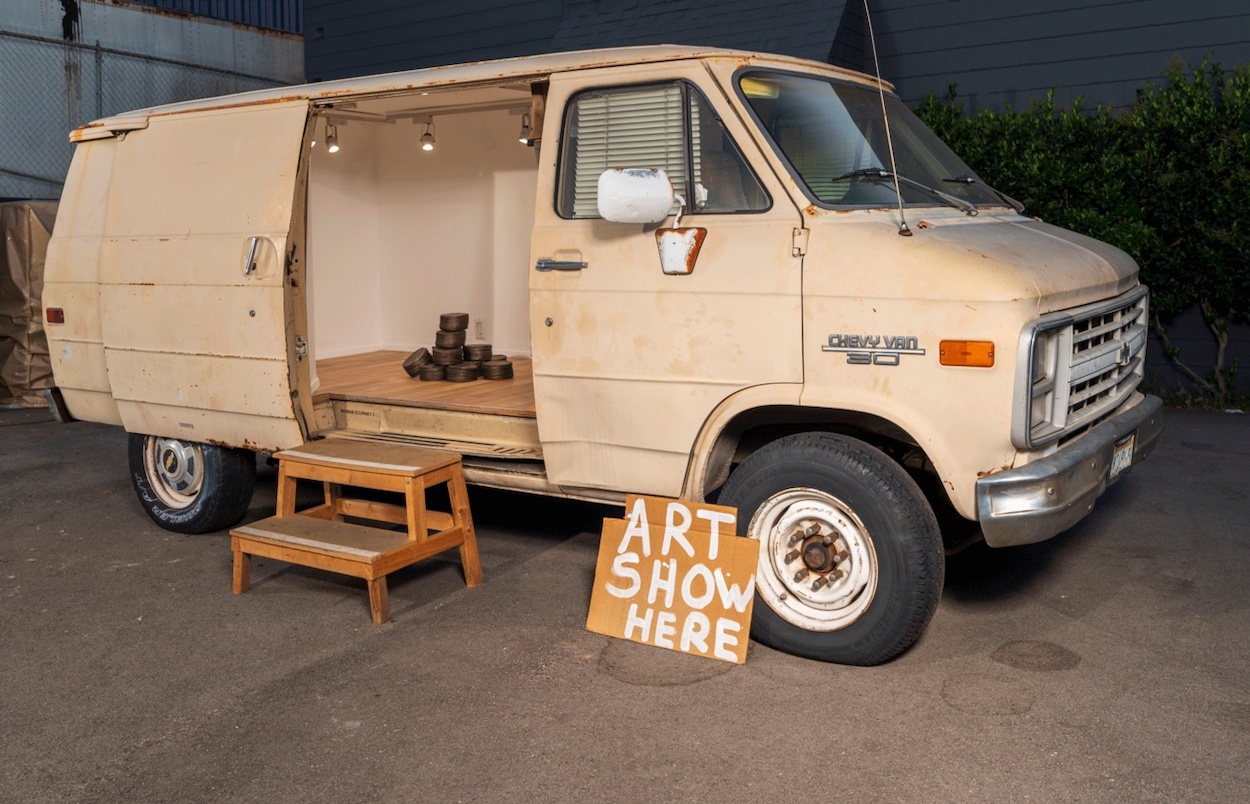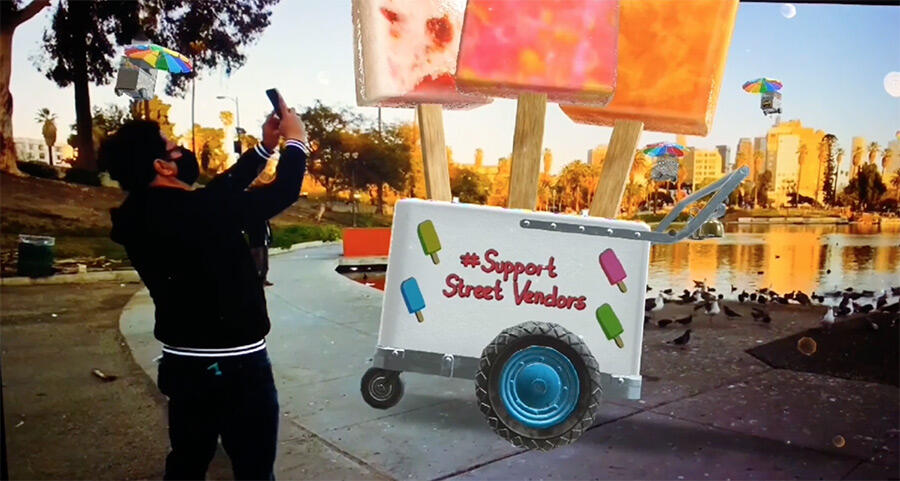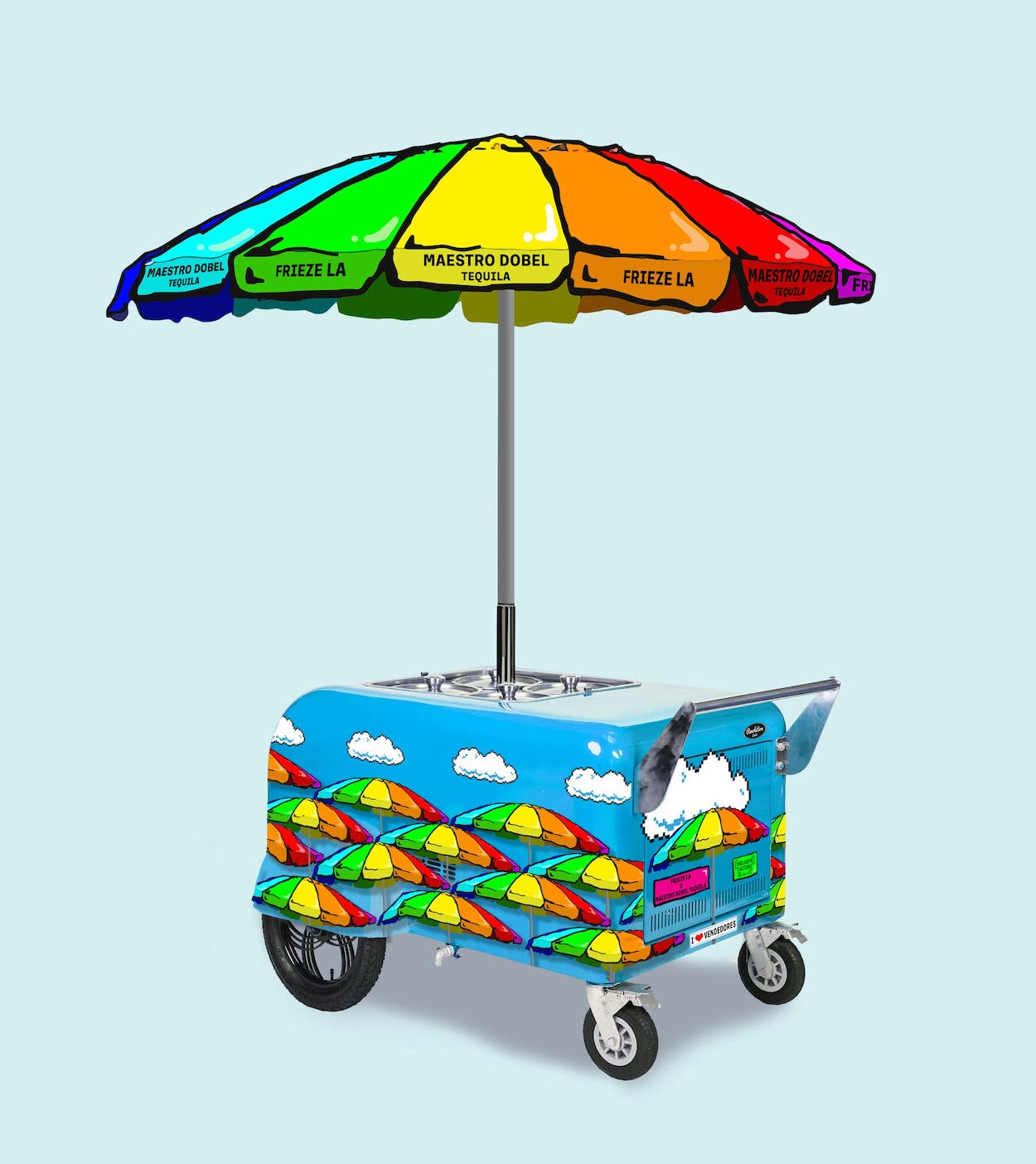When Ruben Ochoa was young, his family sold tortillas out of a beige 1985 Chevy cargo van in Oceanside, a sunny coastal town north of San Diego. “This was before there were Mexican markets on every other corner,” Ochoa says. “It was essentially a mobile mercado on wheels.” He inherited the vehicle as a graduate student at the University of California, Irvine, in the early 2000s, but it was barely running after more than two decades of wear and tear. So the aspiring artist transformed it into a mobile gallery and curatorial project called CLASS: C that showcased works made primarily by emerging artists of color, appearing across California at lowrider shows, the Rose Bowl Flea Market, and the Orange County Museum of Art’s 2004 California Biennial.
Ochoa, now an established artist, still owns the van. To celebrate the 20th anniversary of CLASS: C, he’s using the vehicle to showcase new artworks that pay homage to his family’s history at this year’s Frieze Los Angeles (Feb. 16–19). Parked on the tarmac of the fair’s new location, the Santa Monica Airport, the van contains bronze sculptures of tortillas that serve as “monuments to the history of the van and to my mom, who pioneered our tortilla delivery route,” he tells the New York Times. The sculptures, commissioned through a city grant, resemble giant coins—a nod to how tortillas represented his family’s currency and livelihood.
The installation, part of a public program organized by the Art Production Fund and sponsored by Maestro Dobel tequila, seeks to raise awareness about the fraught conditions faced by street vendors in Los Angeles. Buying food from street carts has been an inimitable fixture of the city’s culinary experience since the 19th century when Chinese and Mexican immigrants would sell tamales from wagons. The practice persisted, and today an estimated 10,000 vendors—many elderly or undocumented—sell food on the city’s streets. It’s a high-risk job: crimes against street vendors increased 337 percent over the past decade.
They are also a politically disenfranchised group. Sidewalk vendors are legal in the city, but they require approval from the bureaucracy-saddled Department of Public Health, which only administers permits for carts of an approved design. Those standards are nearly impossible to meet due to public health codes crafted around brick-and-mortar restaurants, requiring extensive storage, refrigeration facilities, and sanitation equipment. The rules are so onerous that city-approved carts usually end up weighing 1,200 pounds, which is why most vendors operate without permits, leading to confiscated equipment and heavy fines.
To combat this economic precarity, the company Revolution Carts painstakingly developed a more manageable cart—fittingly named the Tamalero—that meets city standards and costs $7,500. Four will be put to the test during Frieze, selling tamales to hungry fair-goers and showing off rainbow graphics by Ochoa. When the fair closes, Maestro Dobel will gift one back to the street vendor community. As for Ochoa’s family van? “It would be awesome for it to find a home that isn’t my parent’s house,” he says. “Maybe LACMA or the Smithsonian.”



